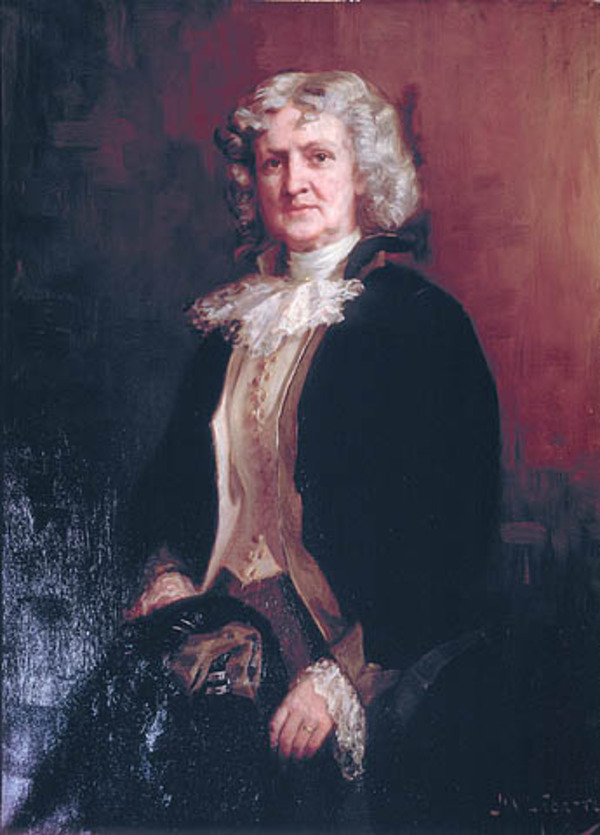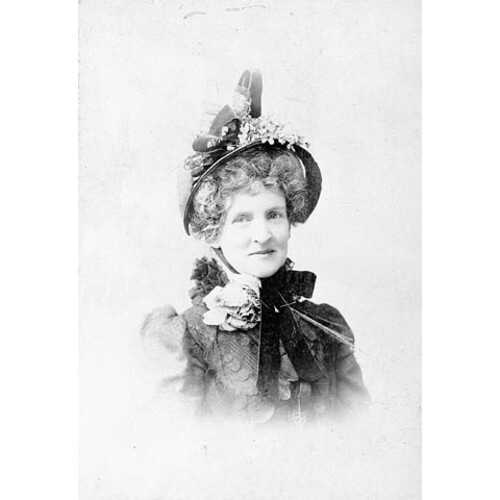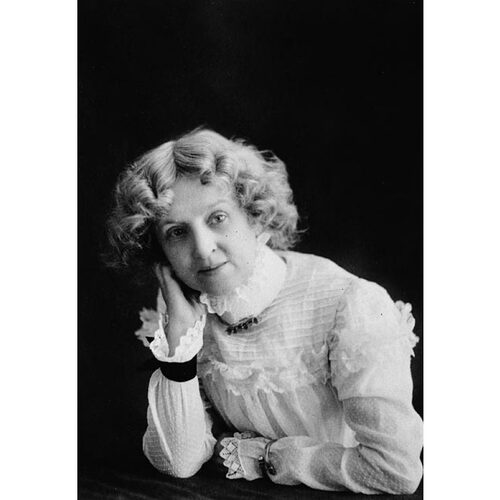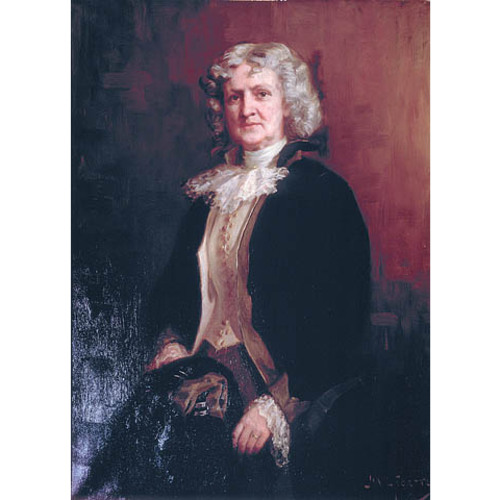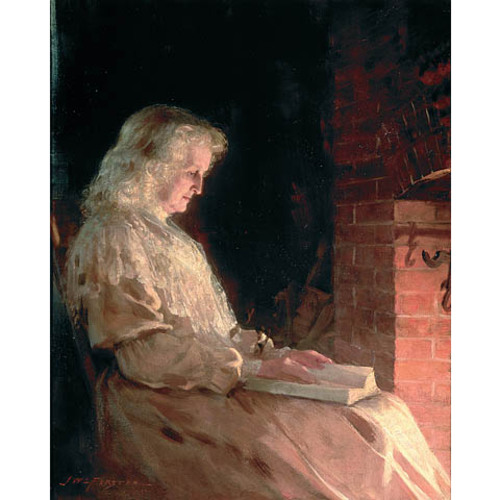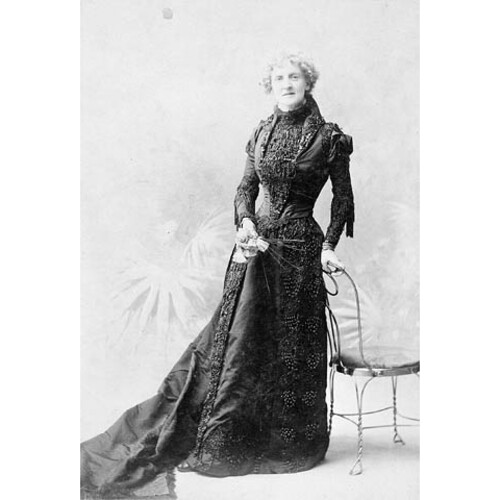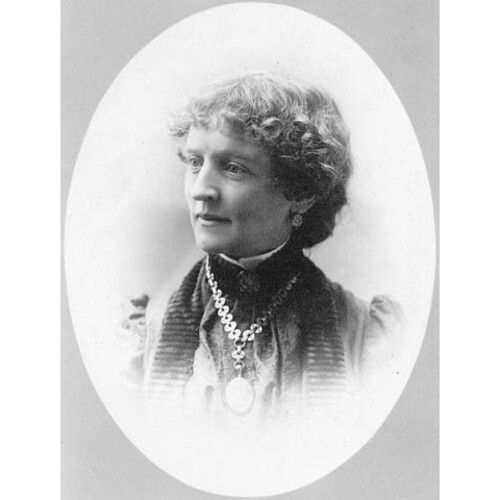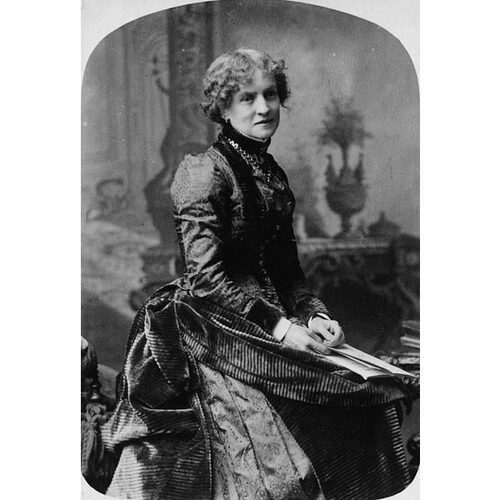MACKENZIE, ISABEL GRACE (King), politician’s mother; b. 6 Feb. 1843 in New York City, 13th child of William Lyon Mackenzie* and Isabel Baxter; m. 12 Dec. 1872 John King (d. 1916) in Toronto, and they had two daughters and two sons; d. 18 Dec. 1917 in Ottawa.
If Isabel Mackenzie were to be judged on her own accomplishments, she would fade into oblivion. She stands out, however, as the daughter of an extraordinary father and the mother of a distinguished son. W. L. Mackenzie had been the major instigator of the rebellion of 1837–38 in Upper Canada. Isabel faced this heritage with ambiguity. She was fiercely proud of being Mackenzie’s daughter: it gave her life a prominence that it would not otherwise have had. She was to name her elder son after him and was always anxious to see the record of her father’s activities set straight. (Her husband would publish a small volume in 1886 as part of this endeavour.)
But Mackenzie was no more successful as a steady provider than he had been as a rebel. Though Isabel was spared the aftermath of the rebellion – she was born in 1843 in New York, where Mackenzie had fled – the subsequent years of family life, characterized by feast and famine and by the deaths of 6 of her 12 siblings, engendered in her an unease that would dominate her life. She was to search for security and advancement with an intensity that brought out some of the least desirable characteristics of her personality. Prevented by the social climate of the times from doing something about her situation herself, she had to rely on the men in her life.
In 1850, when Isabel was seven, the Mackenzie family had moved back to Toronto, where she attended the school of the Sisters of Loretto. For a time after her father’s death in 1861, she and her mother and sisters ran a school themselves. Her marriage in 1872 to a personable and promising lawyer, John King, and the setting up of a home in Berlin (Kitchener), Ont., appeared at first to fulfil her need for a prestigious lifestyle. Vivacious and attractive, with a penchant for fine clothing and jewellery, she entertained well, was active in St Andrew’s Presbyterian Church and local music circles, and encouraged John’s intellectual stimulation of their children. Her hopes began to fade when John failed to achieve success and legal prominence, but the couple was able to send their boys, William Lyon Mackenzie* and Dougall Macdougall (Max), to university and to see their daughter Janet Lindsey (Jennie) successfully married. Still, it was a struggle. Their elder daughter, Isabel Christina Grace (Bella), was never in good health and would die in 1915. Woodside, their residence near Berlin from 1886, was rented. In 1893 the family moved to Toronto, where John had accepted a lectureship at Osgoode Hall. He made no headway in private practice, however, so that in middle age Isabel experienced the pattern of financial difficulty, frequent moves, and disappointments that she had known as a child. Her fears and hopes came to be focused on her elder son, Willie.
It is clear from family correspondence that Isabel was in constant fear of finding in Willie the recklessness and lack of concern for self-advancement that had ruined her father. At the same time she hoped that the youth who displayed much of his grandfather’s promise could be the family’s salvation. She attempted to guide his life at every turn with gentle loving words that nevertheless made clear her wish to see him follow a path that would facilitate his exploitation of patronage and produce financial security for them all. Such pressure was not restricted to career choices. In 1892–93 an adolescent romance was transformed into a family crisis that took on epic proportions when Willie seemed determined to make an inappropriate marriage. She expressed disappointment when he failed to join his father’s law firm in 1895. She was initially troubled at his decision to enter politics – he was first elected in 1908 – just as she had been unhappy with her husband’s interests in this sphere. But at the same time the Mackenzie heritage seemed to lead in this direction. She was proud and excited when she accompanied Willie to official occasions; her praise was strong when he mixed with prominent individuals. It was an unkind fate that Isabel, who had moved in with Willie in Ottawa in late 1916, died while he was campaigning to regain a parliamentary seat and never lived to see him become prime minister of Canada. She was buried in the family plot in Mount Pleasant Cemetery in Toronto.
Much of the public perception of Isabel King comes from the idealized version of her created by W. L. M. King. He was what she made him, and he acknowledged her role. Her portrait by John Wycliffe Lowes Forster* was given a place of prominence in his study. From his papers and diaries this sanitized portrayal has been carried into biographies of him, so that it has become necessary to correct the record. Suggesting that Isabel King was a woman like many others is not intended to disparage her. That she survived hard times to raise a family and launch a son into a successful career is no mean feat. The fact was that in the process she was sometimes bitter, vain, and self-centred. Of greater importance was her strong influence on her elder son’s personality.
Like so many women before and after her, Isabel Mackenzie is remembered only as a reflection of others – daughter, wife, and mother – a common but not-to-be-scorned epitaph.
The principal source of primary material for Isabel Mackenzie King is the collection of family papers and correspondence in the W. L. Mackenzie King* papers at NA, MG 26, J. Additional background detail concerning the Mackenzie family is available in the Mackenzie-Lindsey papers at AO, F 37. These are the chief sources used in secondary works, notably R. MacG. Dawson and H. B. Neatby, William Lyon Mackenzie King: a political biography (3v., Toronto, 1958–76),1. E. Esberey, Knight of the Holy Spirit: a study of William Lyon Mackenzie King (Toronto, 1980), and M. W. Nicolson, Woodside and the Victorian family of John King ([Ottawa], 1984).
Cite This Article
J. E. Esberey, “MACKENZIE, ISABEL GRACE (King),” in Dictionary of Canadian Biography, vol. 14, University of Toronto/Université Laval, 2003–, accessed December 30, 2025, https://www.biographi.ca/en/bio/mackenzie_isabel_grace_14E.html.
The citation above shows the format for footnotes and endnotes according to the Chicago manual of style (16th edition). Information to be used in other citation formats:
| Permalink: | https://www.biographi.ca/en/bio/mackenzie_isabel_grace_14E.html |
| Author of Article: | J. E. Esberey |
| Title of Article: | MACKENZIE, ISABEL GRACE (King) |
| Publication Name: | Dictionary of Canadian Biography, vol. 14 |
| Publisher: | University of Toronto/Université Laval |
| Year of publication: | 1998 |
| Year of revision: | 1998 |
| Access Date: | December 30, 2025 |


